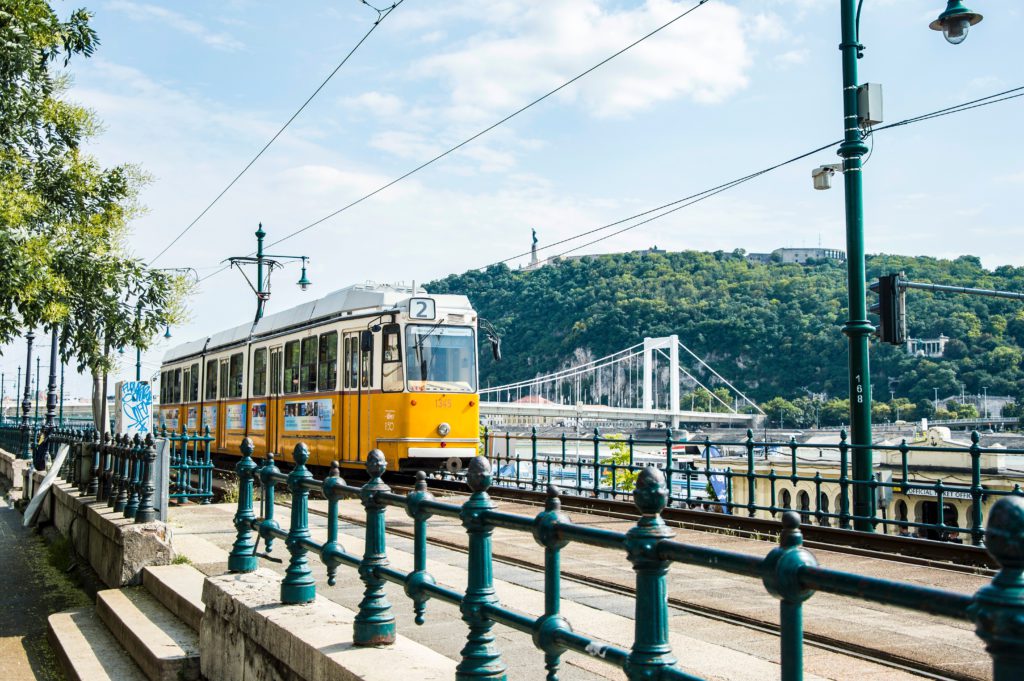Project Partners Showcase Their Achievements in the EBSF_2 Results Workshop in Budapest
 Project partners Chalmers and PluService presented the results they achieved in Gothenburg (Sweden) and Ravenna (Italy) in the framework of the project. UITP’s Yannick Bousse provided an overview of the EU-funded projects on the topic of innovation in bus technology, whilst Szeged’s Zoltán Adám Németh presented Szeged’s trolleybus system and its future development. The workshop included a site visit to one of BKK’s bus depots (see picture).
Project partners Chalmers and PluService presented the results they achieved in Gothenburg (Sweden) and Ravenna (Italy) in the framework of the project. UITP’s Yannick Bousse provided an overview of the EU-funded projects on the topic of innovation in bus technology, whilst Szeged’s Zoltán Adám Németh presented Szeged’s trolleybus system and its future development. The workshop included a site visit to one of BKK’s bus depots (see picture).
Yannick Bousse from UITP introduced the EBSF_2 project in the wider framework of EU-funded R&I projects on bus systems, from the first ESBF (2008) to the most recent Assured and Jive projects (2017). A presentation of the advanced solutions for improved efficiency and attractiveness of bus systems followed, based on the experience of the EBSF_2 pilot sites Lyon, Barcelona, San Sebastián and London.
Gothenburg’s activities within EBSF_2 consisted in the development and testing of heating solutions for electric buses and a qualitative study to investigate travelers’ perceptions of electric buses and the new “indoor” bus stops. These activities, presented by Professor Pontus Wallgren, draw on the experience of the ElectriCity project, which contributed to electrify the bus route 55 and experiment new ways of integrating electric public transport into the urban context.
PluService’s Daniela Vasari presented the innovative technological solutions tested in the EBSF_2 pilot site Ravenna, Italy. A special attention was given to Officina, a tool for predictive maintenance and budget maintenance developed in the framework of the EBSF_2 project. The tool provides analytical data to the transport operator on the state of the fleet, enabling the prevention of upcoming breaks of the main components of the vehicle and therefore a significant reduction of the overall maintenance costs.
SZKT’s Zoltán Ádám Németh contributed to the workshop with a presentation on the deployment of electric buses focusing on the development of batteries and their limitations. The potential of Szeged’s existing trolleybus infrastructure was then presented in the light of the city’s effort to make local transport increasingly more sustainable and efficient.
Ivo Cré, deputy-director of Polis and moderator of the event, concluded the workshop presenting the European Commission’s Clean Bus Deployment Initiative and the European Investment Bank’s Transport Lending Policy.
